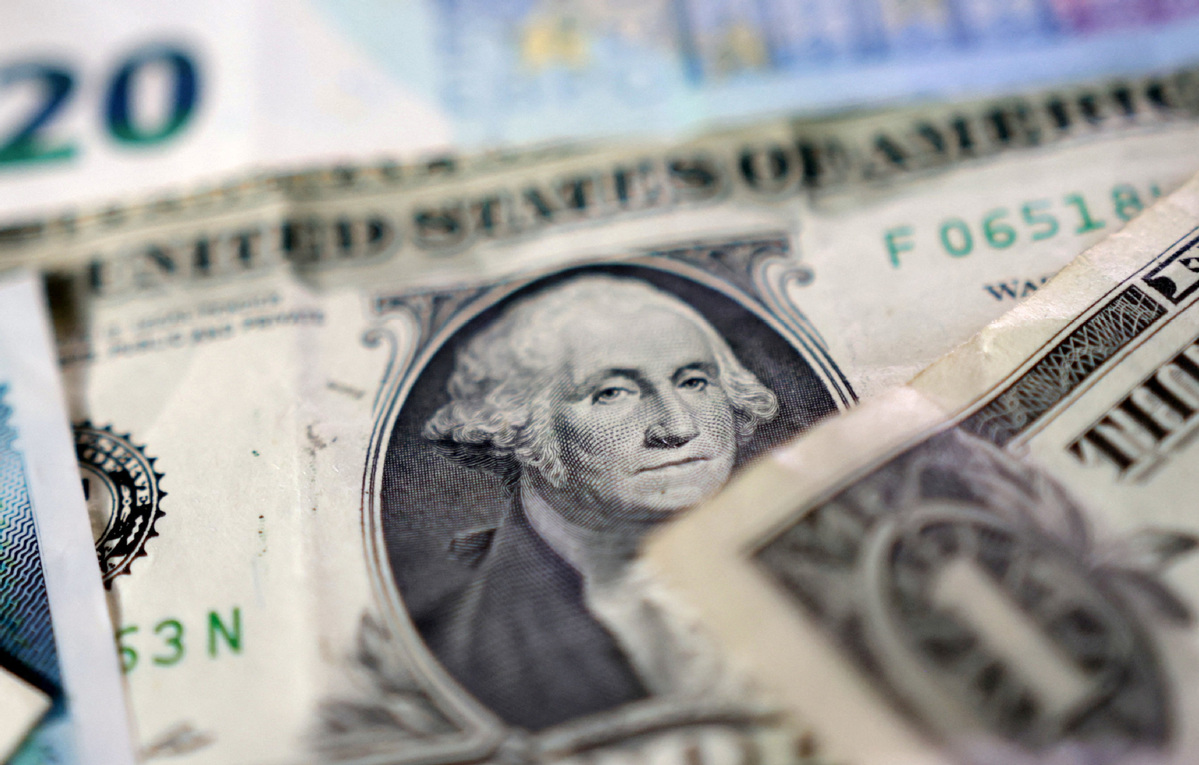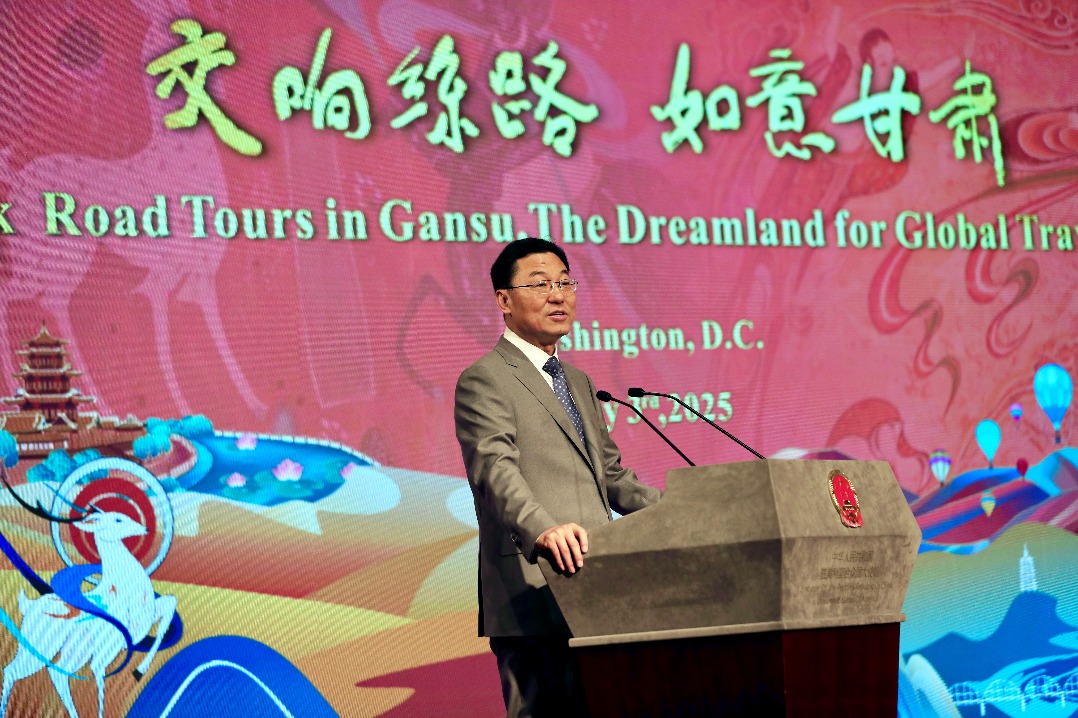Experts: US policies risk dollar status, global financial order


The United States is undermining global trust in the dollar and risking the currency's decades-long primacy, potentially causing a fragmentation of the international monetary system, according to participants in a discussion at the Peterson Institute for International Economics (PIIE).
At the April 24 event titled "Does changing the trade regime change the dollar regime? To Mar-a-Lago and beyond", the speakers said that policies aimed at reinforcing US power could undermine its economic advantages, including the "exorbitant privilege" of the dollar, a term coined by Markus Brunnermeier, who is a PIIE nonresident senior fellow and Princeton University professor.
Maurice Obstfeld, also a senior fellow at PIIE, said that the current US approach replaces multilateral cooperation with "economic coercion", aiming to create a kind of a "co-prosperity sphere", where partners gain benefits by facilitating US objectives.
He listed potential tools, including setting exchange rates beneficial to the US, erecting barriers against China and Chinese products, pressuring allies to finance US deficits by buying Treasurys, and steering foreign direct investment (FDI) toward the US.
That approach, Obstfeld said, is underpinned by flawed "narratives of victimization" and ignores the considerable benefits the US derived from the postwar multilateral system. More critically, it undermines the foundations of the dollar's global primacy, he said.
"If you look at the foundations of US currency primacy, all of them seem to be becoming weaker, if not disintegrating," Obstfeld said, mentioning deteriorating fiscal probity, questions surrounding Federal Reserve independence, degraded government functionality, a shrinking global security reach, declining trade openness, and pressures on the rule of law and financial openness.
Obstfeld dismissed the "myth" that the dollar's global role is the primary driver of US current account deficits, saying that global accumulation of dollar reserves has flattened relative to GDP. He warned that the damage to international trust could be severe and long-lasting.
"The problem with trust is that you can destroy it quickly," he said. "You can't rebuild it very quickly, and the destruction in the last, you know, 100 days has been epic," he said.
Brunnermeier detailed the unique advantages the US stands to lose, framing them as three distinct "exorbitant privileges".
The first is commonly understood as "convenience yield", which means the lower interest rate that the US pays on its debt, he said.
The second is the ability to issue debt that functions as a global safe asset, which others are willing to hold and roll over indefinitely, effectively allowing the US to "run a current account deficit forever".
The third privilege is the dollar's "safe haven" status, a term that describes capital flowing into US Treasurys during global crises, so the US can finance stimulus cheaply when others cannot.
"All of these three privileges I think are very valuable to have," Brunnermeier said, adding that the US "worked very, very hard to build up this status".
However, he said that current policy attempts, described as potential "global financial repression" to keep US interest rates low while weakening the dollar via coercion, would risk undermining those advantages," particularly the crucial tradability and perceived safety of US Treasurys".
He also said that the uncertainty generated by those policies acts "like a tax without any revenue", forcing the US government to pay a higher risk premium on its debt as the safe asset status becomes "shaky".
That uncertainty could spur other regions to develop their own safe assets. Brunnermeier acknowledged the potential for a more multipolar world with regional zones centered on the dollar, renminbi, euro and yen.
Warwick McKibbin, a nonresident senior fellow at PIIE and professor at Australian National University, discussed the tangible economic costs of US tariff policies and heightened uncertainty.
McKibbin said that US tariffs alone would shrink the US economy by more than 1 percent by 2026. If trading partners retaliate, which is a likely scenario given actions already taken by China and threats from Europe, the damage deepens significantly, potentially reducing US GDP by more than 2.25 percent, he said.
McKibbin also said that adding a 100 basis-point risk premium shock to account for lost confidence could cause the dollar to depreciate sharply, potentially 15 percent combined with tariffs and retaliation, and trigger further economic contraction as capital flees and investment shrinks.
"Higher risk, high volatility destroys economic activity, and that's the risk you take when you have uncertain economic policies," he said, adding that the policies lead to a "permanent reduction in the size of the US economy".
McKibbin doubted the Trump administration's claims that tariff revenues could finance large fiscal plans, saying that the math is "extremely optimistic".
Adam Posen, the president of PIIE, talked about the link between US foreign policy, security guarantees, and the dollar's role. He said the dollar's dominance was never based solely on economics but also relied on the US security umbrella, but that factor is now being undermined.
"In essence, there were two open secrets that helped explain why the dollar was dominant," Posen said. "The first is ... the least ugly contest ... But the second was that the security regime, which was tied to the US, actually mattered."
He gave some historical examples, from the CFA Franc Zone's links to France, to Germany's holding of dollars during the Cold War, suggesting that security ties heavily influenced currency choices.
"What's happening is the security guarantees and the economic guarantees and the financial guarantees all combined to make the insurance proposition offered by the US valuable," Posen said. "You're essentially now offering from the US a higher premium for lower insurance."
He said that the shift could reverse capital flow dynamics. Instead of fleeing to the dollar during turmoil, capital might flee if the US is perceived as the source of instability.
Posen suggested watching for signs like narrowing EU-US defense spending gaps, the rise of a strategically autonomous digital euro, potential conditions placed on Fed swap lines crucial for global dollar liquidity, and the strengthening of alternative arrangements like the Chiang Mai Initiative in Asia, a currency swap agreement by the 10 members of the Association of Southeast Asian Nations, including China.

































